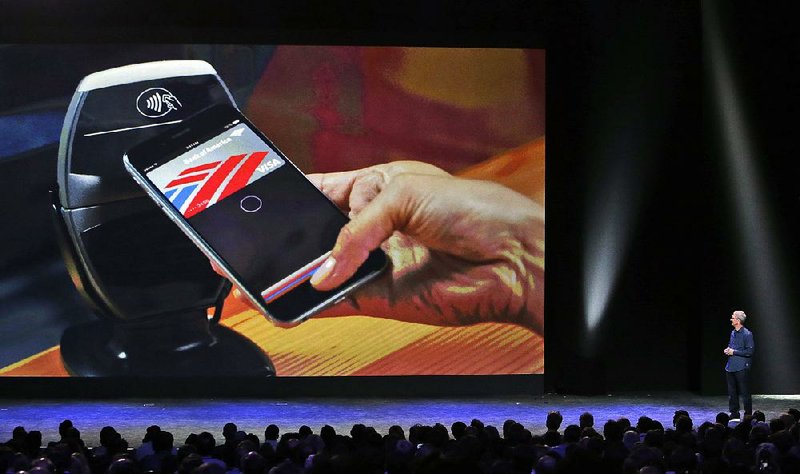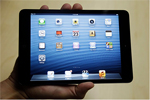While Apple's wallet technology for the new iPhone is expected to increase the number of people making mobile payments, individual retailers remain a hurdle.
Retailers want to interact with customers more directly when using mobile payment applications by offering targeted advertisements based on shopping history, something made difficult with a third-party application such as Apple Pay, analysts say.
"[The] Apple Pay introduction moved mobile payments significantly forward," said Gil Luria, research analyst for Wedbush Securities Inc., adding that it has introduced the new purchasing method to a broader audience than other companies have in the past.
But, he said, the mobile payment industry is still very young.
"Retailer acceptance is the next big hurdle," Luria said. "Retailers want to see the benefit; they want to make sure they control the relationship with the customer."
Mobile payments are made by customers using applications on devices such as smartphones to pay at restaurants and stores. Users connect the apps to their bank or credit card accounts.
Apple announced its Apple Pay mobile wallet during an event last week to unveil the newest iPhone. The company is working with credit card companies such as American Express Co. and Visa Inc.
However, some retailers, including Wal-Mart Stores Inc., have balked at Apple's payment vehicle, opting for a service by Merchant Customer Exchange that gives retailers direct access to shoppers rather than having to go through a third party.
"We are not participating in Apple Pay at this time," said Randy Hargrove, spokesman for Wal-Mart.
The mobile wallet by Merchant Customer Exchange features loyalty programs and instant coupon savings on a person's phone at the point of purchase, according to a news release.
Wal-Mart and other retailers are looking at other mobile wallet options because they want to keep control over their relationship with consumers and retain the information that is collected when a shopper purchases something, analyst said.
"They would rather build the tools themselves in order to protect that relationship," Luria said. "They would like to do targeted marketing and be able to have an intimate relationship with a customer."
He added, "What they don't want is a tech company using the information to market something else to consumers."
Other retailers, such as latte giant Starbucks, have chosen mobile payment systems that are included in their smartphone applications.
Starbucks' application, which integrated mobile payments in 2011, also features the company's loyalty program.
Because a customer's account on the application is registered, Starbucks can monitor what a customer is buying and then suggest similar drinks or food options that might appeal to them, said spokesman Maggie Jantzen.
"That does help us to be able to provide offers that are relevant to you," she said. "We want to make sure we are providing offers that are relevant to customers."
Another payment option involves a retailer's smartphone application and payment through a third party, such as PayPal.
"PayPal is especially trying to develop new cases where they can help the retailers and restaurants interact with their customers," Luria said.
PayPal recently began working with MAPCO, a retail gasoline convenience store. With the MAPCO application a customer can drive up to a gasoline pump and pay for fuel using the application on their smartphone, said Howard Curtis, director of marketing with MAPCO Express Inc.
The transaction is completed with money from the customer's PayPal account. The application allows MAPCO to provide discounts on gasoline and other promotions through the company's loyalty program, Luria said.
"The convenience for the user experience is that it is self-contained in the retailer's app," Curtis said.
During a transaction with PayPal, a customer's financial information is not shared with retailers, which shoppers like. But it allows a company to have a direct relationship with a customer, Luria said.
By only sharing the transaction information with a retailer, an extra layer of security is added for consumers, said Chris Morse, head of merchant communications at PayPal.
"The more we can get consumers to understand the value of paying with their mobile device ... it's going to add convenience and help them save money," Morse said.
Thad Peterson, a senior analyst with Aite Group, said the Starbucks and MAPCO applications will remain viable, despite development of mobile wallets, because they are for frequent purchases.
"You buy coffee a lot and gasoline a lot," he said. "That type of app is desirable because it's more convenient and linked to their loyalty program."
Business on 09/16/2014

